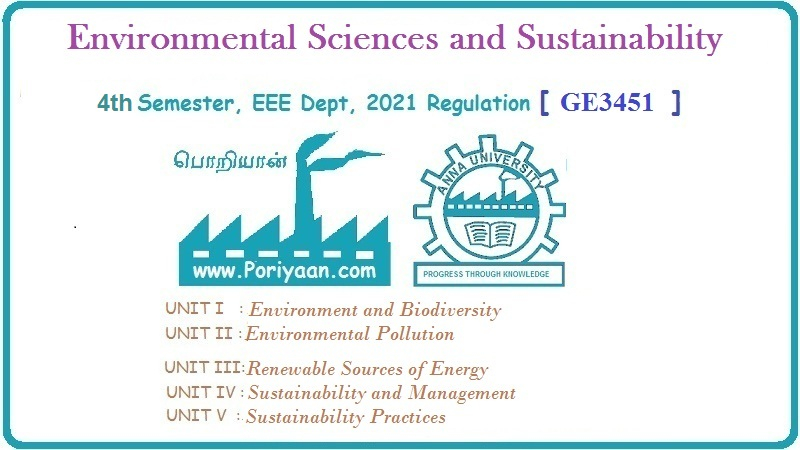Environmental Sciences and Sustainability: Unit V: Sustainability Practices
Sustainable Transport
Definition, Principle, Benefits | Sustainability Practices
• Energy efficiency is defined as the use of energy in an optimum manner to achieve the same service that could have been achieved using a common less efficient manner.
Sustainable Transport
•
The sustainable transport definition can be best described as any type of
transport that does not rely on the world’s natural resources to power it.
•
Sustainable Transportation refers to any means of transportation that is green
and has low impact on the environment.
•
Sustainable transportation is also about balancing our current and future
needs. Examples of sustainable transportation include walking, cycling,
transit, carpooling, car sharing and green vehicles.
•
Sustainable Transport is sometimes known as Green Transport and it is any form
of transport that does not use or rely on dwindling natural resources. Instead
it relies on renewable or regenerated energy rather than fossil fuels that have
a finite life expectancy. For this reason it is said to have a low or a
negative effect on the environment since it makes use of energy sources that
are sustainable.
•
Walking, cycling and sailing are excellent examples of sustainable transport.
•
The sustainable transport definition can be best described as any type of
transport that does not rely on the world’s natural resources to power it.
•
Sustainable transportation options run on clean fuel, batteries or both.
Alternative fuels can be used in flexible-fuel and dual-fuel vehicles as well
as vehicles with advanced technology, such as hybrid power systems and fuel
cells.
•
Alternative fuels help conserve fuel and reduce emissions. They include :
a)
Biodiesel
b)
Electricity
c)
Ethanol
d)
Hydrogen
e)
Natural Gas
f)
Propane
1. Benefits of Sustainable Transport
•
Sustainable modes of transportation have several benefits. These include :
1)
Reduced traffic congestion
2)
Cost savings on fuel and vehicles
3)
Reduced greenhouse gas emissions
4)
Reduced dependence on non-renewable energy sources
5)
Reduced transportation costs
6)
Increased physical activity
7)
Increased social interaction
8)
Support for local businesses and a vibrant economy
9)
Healthier lifestyles and a better quality of life
10)
Improved accessibility to reliable, affordable transportation options for all.
Environmental Sciences and Sustainability: Unit V: Sustainability Practices : Tag: : Definition, Principle, Benefits | Sustainability Practices - Sustainable Transport
Related Topics
Related Subjects
Environmental Sciences and Sustainability
GE3451 ESS 4th Semester | 2021 Regulation | 4th Semester EEE Dept 2021 Regulation
